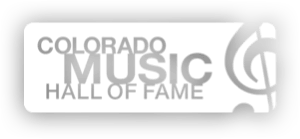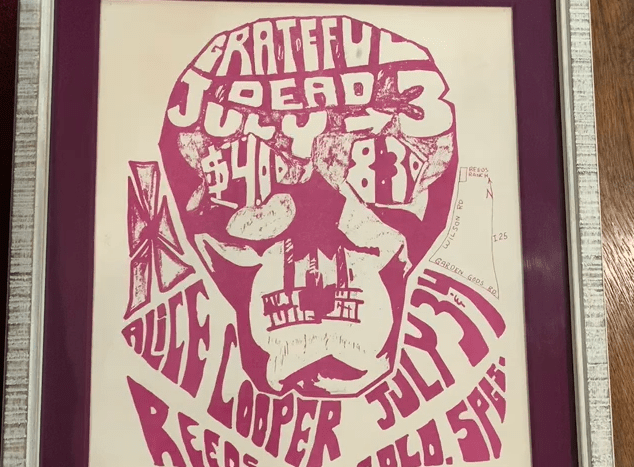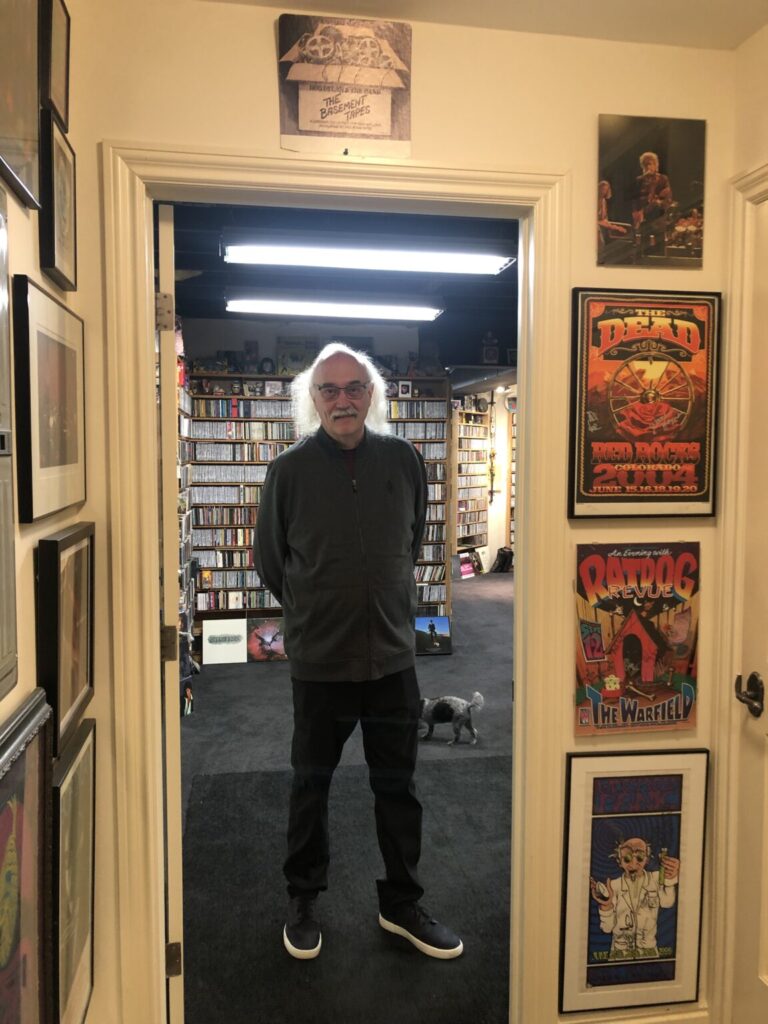Last edition, you will recall I was recounting the experience of cleaning out the basement of the Denver Folklore Center with its founder, Colorado Music Hall of Fame inductee Harry Tuft. In that basement were literally hundreds of pieces of paper that had to be sorted through to find the few gems that really showcased Colorado and its music history. The shows themselves are a fascinating glimpse into the tastes of the public at the time, but the posters are also an important resource about the local music business infrastructure that surrounded popular music events.
These posters testify to the pivotal role Harry Tuft played, and continues to play, in the cultural and artistic development of this great music state we live in. Thanks Harry!
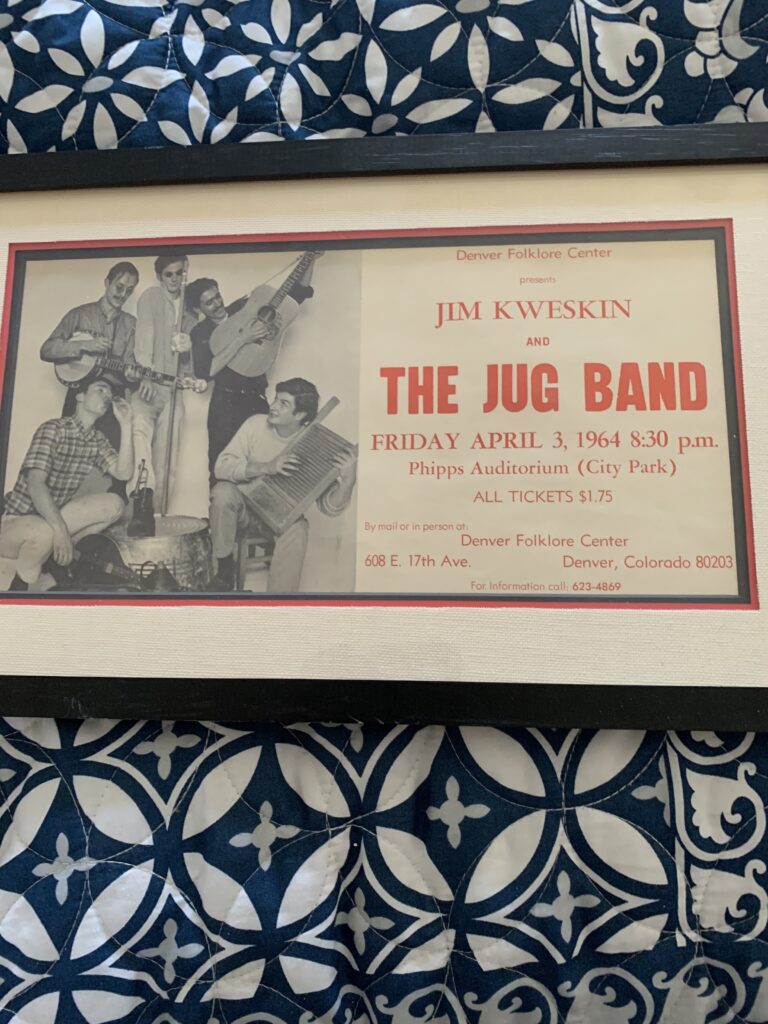
There is a lot to be gleaned here. Kweskin was a real pioneer of the ‘old timey’ music revival. Along with others like Eric Von Schmidt and Dave Van Ronk, he really flew the flag for traditional American music. His band was a fantastic conglomeration of established players from bluegrass and a new generation of musicians seeking a valid cultural connection to the past. Geoff and Maria Muldaur both went through the group, as did Mel Lyman. Lyman is a fascinating character who was both a gifted musician, natural leader and, as it turned out a potentially dangerous and violent cult leader. His story is both interesting and chilling, and I recommend further research. Why a movie has not been made about Lyman is a mystery. He had qualities that make him comparable to Manson, although he was complex and the Manson comparison doesn’t really do his legacy justice.
The venue, Phipps Auditorium, was built in 1940as part of the Denver Natural History Museum (now Denver Museum of Nature and Science). It was used for lectures, concerts and special events until 1982. I remember seeing school-sponsored lectures there in the 1970s. In 1983, it became the Museum’s IMAX theatre.
One can only marvel at what the audience at this show was like: curious intellectuals, dyed in the wool folkies, nascent counterculture types – who knows? I’ll bet Harry does. If you notice, The Folklore Center is the sole sponsor and ticket outlet for this event.
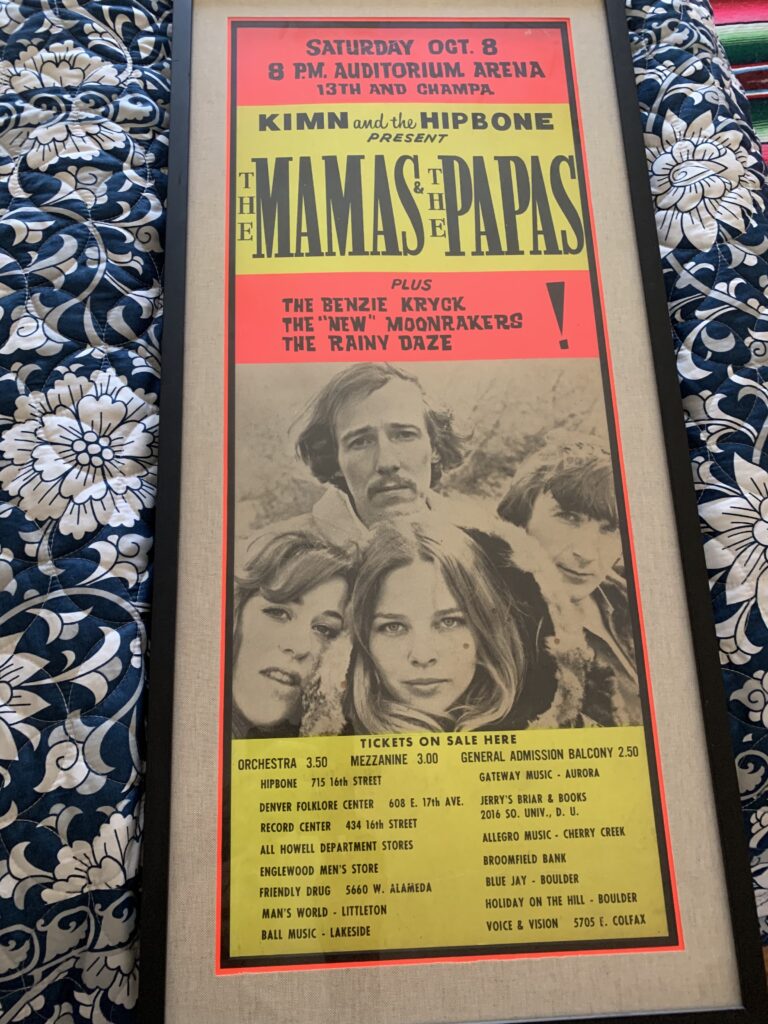
When one looks over the history of events held at the Denver Auditorium Arena (built in 1908), it is a snapshot of the history of American popular culture of the 20th century. Every type of entertainment for every audience made a showing there. We tend to look at Colorado as a cultural backwater sometimes, but nothing could be further from the truth. This poster has it all! Color, photo, local opening acts and lots of intriguing ticket outlets. The Mamas & The Papas were riding high at this point in time with multiple hits in the Top 10, and a secure place in the rock royalty firmament. It’s no surprise that the show was sold out.
The opening acts for this show were Benzie Kryck, The “New” Moonrakers and The Rainy Daze. All three of these groups loom large in 1960s Colorado music. Known to all locals as Boenzee Cryque, this country rock band had some success and recorded at least three singles, one of which Ashbury Wednesday appeared in the “psychsploitation” movie Psych Out. For years their 45s were hot collector’s items. The band included both Rusty Young and George Grantham who both became Colorado Music Hall of Fame inductees with their band Poco. The Moonrakers were a popular garage rock outfit with a number of sought after singles. They would go on to become Colorado Music Hall of Fame inductees Sugarloaf to greater acclaim while remaining beloved in the hearts of early fans. The Rainy Daze recorded the controversial pro-marijuana song and album That Acapulco Gold in 1967, bringing them great notoriety. One of the members was later co-author of the smash hit Incense & Peppermints.
The ticket outlets listed are a treasure trove of cool Colorado places that used to be. Co-promoter Hipbone was Harry Tuft’s record store.
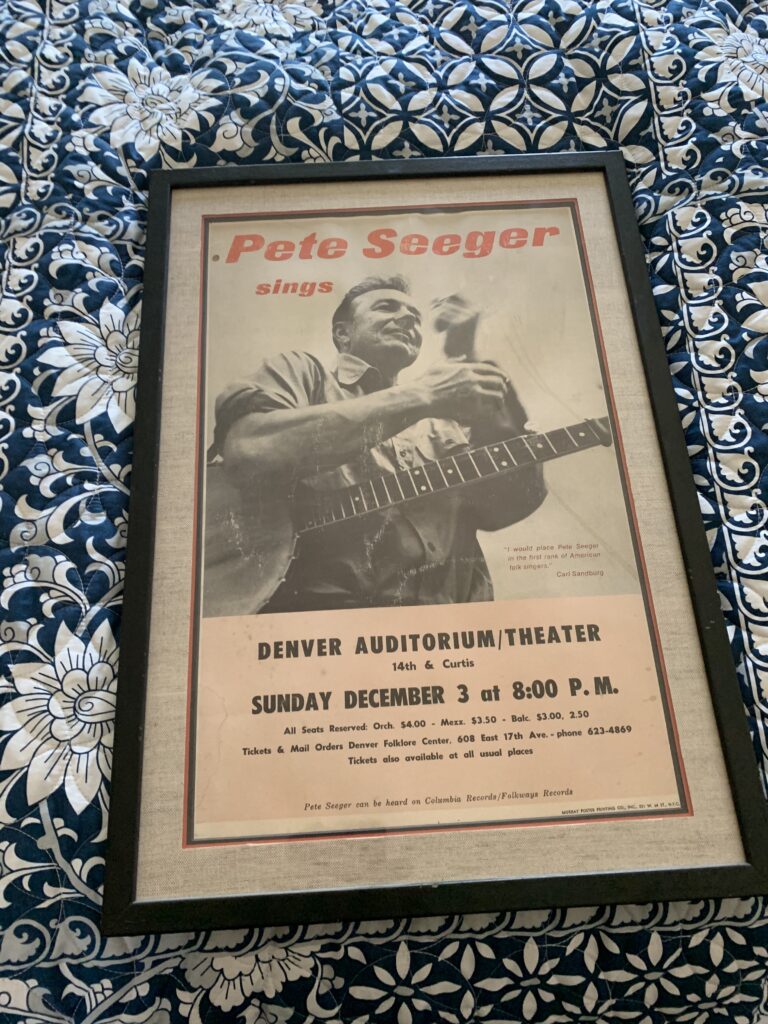
Allegedly, Harry got Seeger to play Denver on the promise that he would take the folk legend skiing in Aspen after the concert. Harry made good on the promise, and the result was this gorgeous poster advertising an American treasure appearing at the height of the social upheavals he was partially responsible for inspiring in a younger generation.
– Paul Epstein, Co-Chair, Colorado Music Hall of Fame; founder/former owner of Twist & Shout; music historian and archivist
